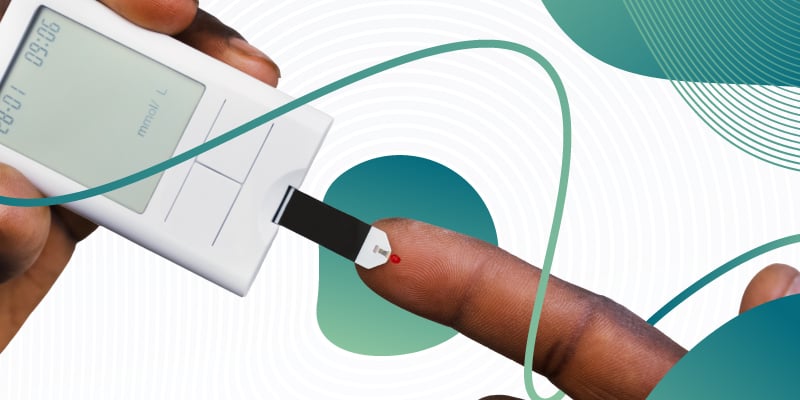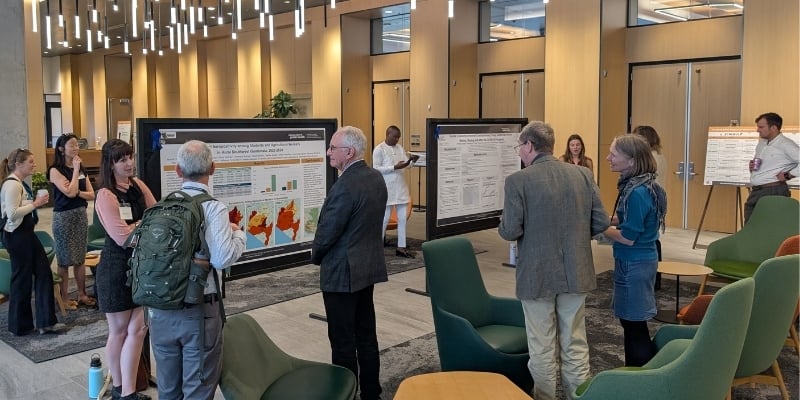A recent survey conducted by Colorado researchers sheds light on how severely COVID-19 is affecting the region’s most economically vulnerable families — and the most effective ways for them to cope with it.
Samantha Brown, an assistant professor in the School of Social Work at Colorado State University, led the team of researchers who conducted the brief online survey of 183 parents in the Rocky Mountain region between April 21 and May 9. The team found that more than half of the respondents, who were primarily from low-income households, said they or someone they knew had tested positive for COVID-19. One-quarter of the participants said they knew someone who had died from the coronavirus.
And the results show that while there are risks for stress-induced child mistreatment among those surveyed, there are ways to alleviate parental stress about the pandemic, including reminding parents what they do have control over in such uncertain times.
“What’s being reported is higher prevalence of COVID among low-income and ethnic minority families, and that’s consistent with what we found,” said Brown, who is a faculty affiliate in the Colorado School of Public Health. “What was surprising for us is how much it is touching the families completing the survey.”
Brown said the survey results, which were published Aug. 20, showed that Latinx parents reported the highest number of COVID-related disruptions of all ethnic groups. Among all respondents, who were recruited primarily via county and state human services agencies, 88% reported poor sleep, 83% were experiencing high levels of anxiety, and 70% said the pandemic was causing symptoms of depression.
“There are high mental health risks with COVID and stay-at-home orders,” Brown said. “It is a serious public-health risk that can affect multiple dimensions of these families’ lives.”
More control, less stress
Among other established measures, the team used a version of the Child Abuse Potential Inventory to distinguish between parents who may engage in abusive parenting behaviors and those who may not, asking questions about factors like parental rigidity and family conflict.
Those who reported higher levels of emotional and social support and more perceived control over the situation also reported lower levels of stress and fewer signs of poor parenting or child mistreatment.
“The level of emotional and social support within the family, and the level of control over stressful events, were significant factors in how parents responded,” Brown explained. “We found evidence that helping them reframe, to see what they have control over, can be protective for families. It could be as simple as having them say, ‘How I deal with this event is under my control.’ The fact that these protective factors reduce those risks is promising.”
In addition to asking parents to identify areas of stress during the pandemic, the survey invited participants to answer open-ended questions.
One parent said that “to make sure my baby is taken care of during this time … I sometimes go without food.” Others acknowledged being stressed over being unemployed, having kids at home and the risk of contracting COVID.
“It’s been mentally and physically stressful dealing with quarantine,” one parent reported. “Small house. My husband has been recovering from … [an] injury and now has to be a teacher, housekeeper, and try to heal himself at the same time. It’s hard for me to go to work every day as an essential worker and be exposed to potential infection. Finances are a mess, and we are relying on food stamps and food banks/free dinners.”
Build resilience
“It was really sad to hear about the stress they are experiencing at home,” said Jena Doom, an assistant professor of psychology at the University of Denver who was on the research team. “They’re under a lot of stress, and the sacrifices they are making are always jarring for one to read.”
Doom said the project showed that the two elements of parental support and perceived control are key to building resilience, which is a lesson for the agencies that will be supporting parents during future stressful times.
“This survey really shows the struggles that families are going through, but also identifies ways to build resilience in families,” she said. “Another big problem with this pandemic, other than people getting sick, is that it’s putting many people in social isolation. That’s a big predictor of poor mental health. Loneliness is also a strong predictor of mortality.”
Brown acknowledged that the respondents to the survey, who each received a $10 gift card for participating, represent only a small subset of this demographic.
“This is not a representation of the entire population, so further research needs to be done with this group as a whole,” she said.
This story was originally written for CSU Source.






